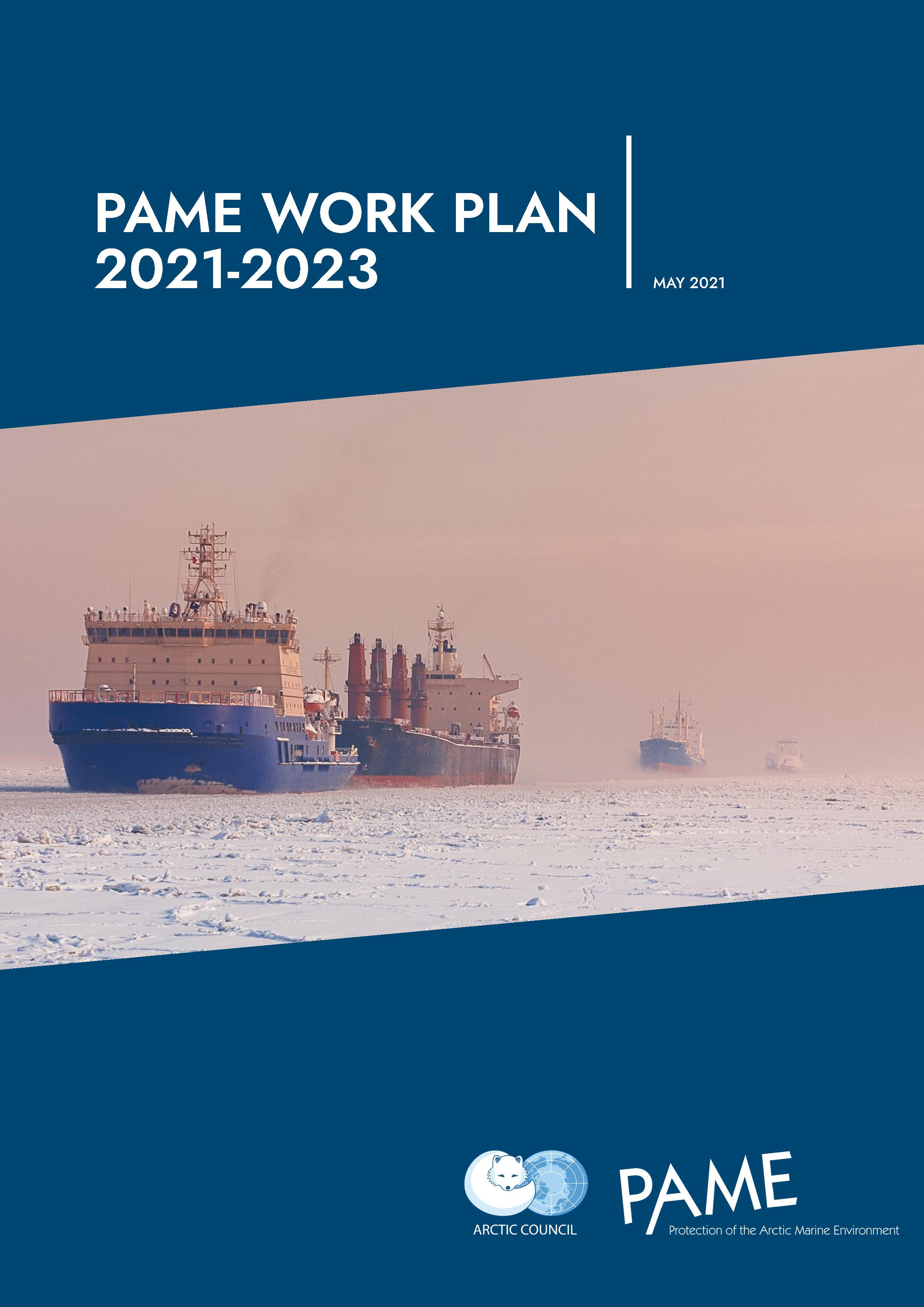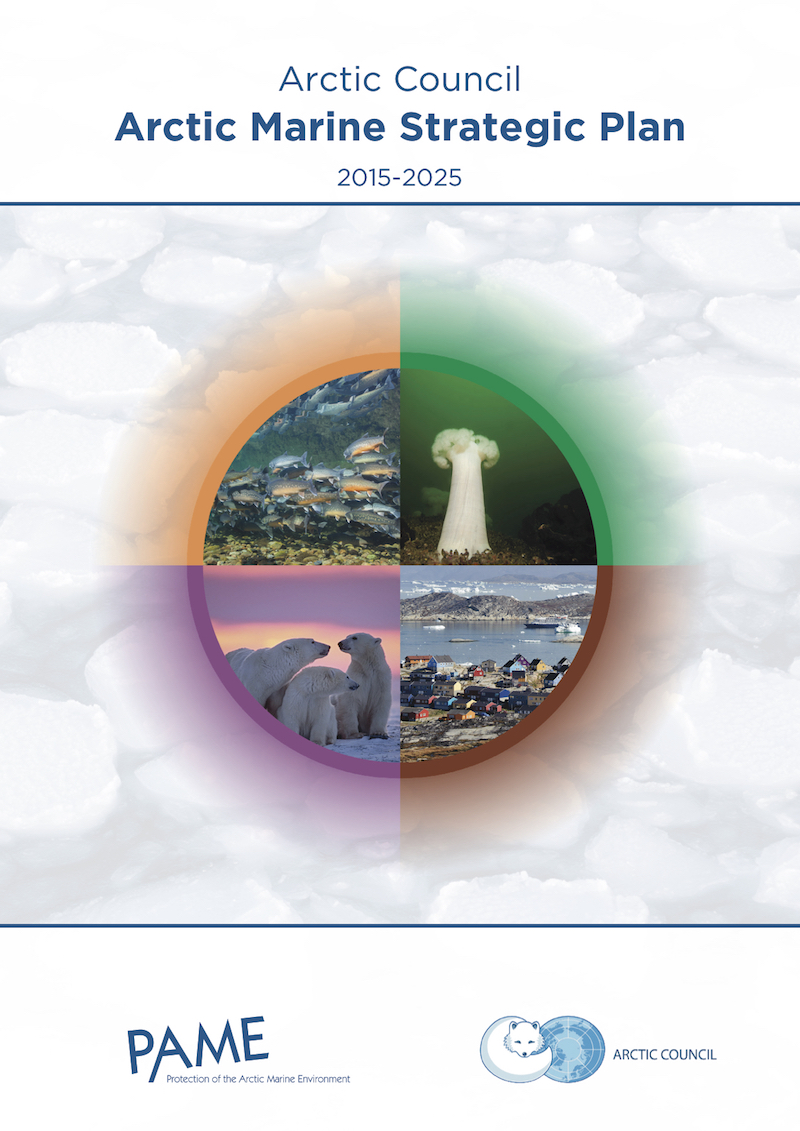
Hjalti
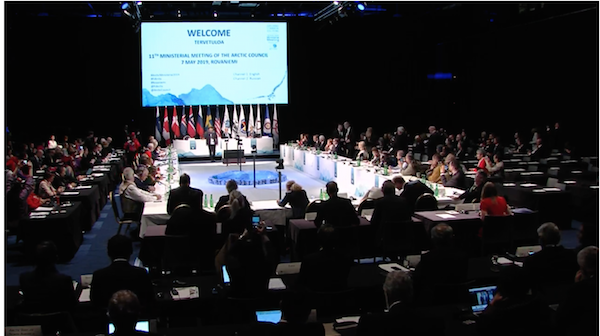 Today the 11th Arctic Council Ministerial meeting was convened in Rovaniemi, Finland. Minister-level representatives from of the eight Arctic States, the delegations from the Council's indigenous Permanent Participant organizations and the Chairs of the Council’s six Working Groups convened the meeting. At the meeting, Iceland took over the Arctic Council Chairmanship from Finland.
Today the 11th Arctic Council Ministerial meeting was convened in Rovaniemi, Finland. Minister-level representatives from of the eight Arctic States, the delegations from the Council's indigenous Permanent Participant organizations and the Chairs of the Council’s six Working Groups convened the meeting. At the meeting, Iceland took over the Arctic Council Chairmanship from Finland.PAME delivered seven ministerial documents for approval:
- Underwater Noise in the Arctic: A State of Knowledge report
- Desktop study on Marine Litter, including microplastics, in the Arctic
- Guidelines for Implementing an Ecosystem Approach to Management of Arctic Marine Ecosystems
- Meaningful Engagement of Indigenous Peoples and Local Communities in Marine Activities (MEMA) Part II Findings for Policy Makers
- 2nd reporting on progress/implementation of the 2015-2025 Arctic Marine Strategic Plan (AMSP)
- 2019-2021 PAME Work Plan
- PAME 2017-2019 PAME Achievements Report
In addition, the following were submitted as informational documents for the meeting:
- Arctic Shipping Best Practice Information Forum Status Report, Web-portal and Press Release
- Report on the environmental, economic, technical and practical aspects of the use by ships in the Arctic of alternative fuels
- Arctic Ship Traffic Data Project Status Report, Database and Press Release
- Regional Reception Facilities project titled: Proposal for a new output to amend MARPOL to allow the establishment of regional arrangements in the Arctic for joint submission by all Arctic States to the 74th Session of IMO’s Marine Environment Protection Committee (MEPC) (13-17 May 2019)
- MEMA database
- Progress report on the EA-EG 2017-2019 work plan
- Various communication and outreach products
All documents are available here.
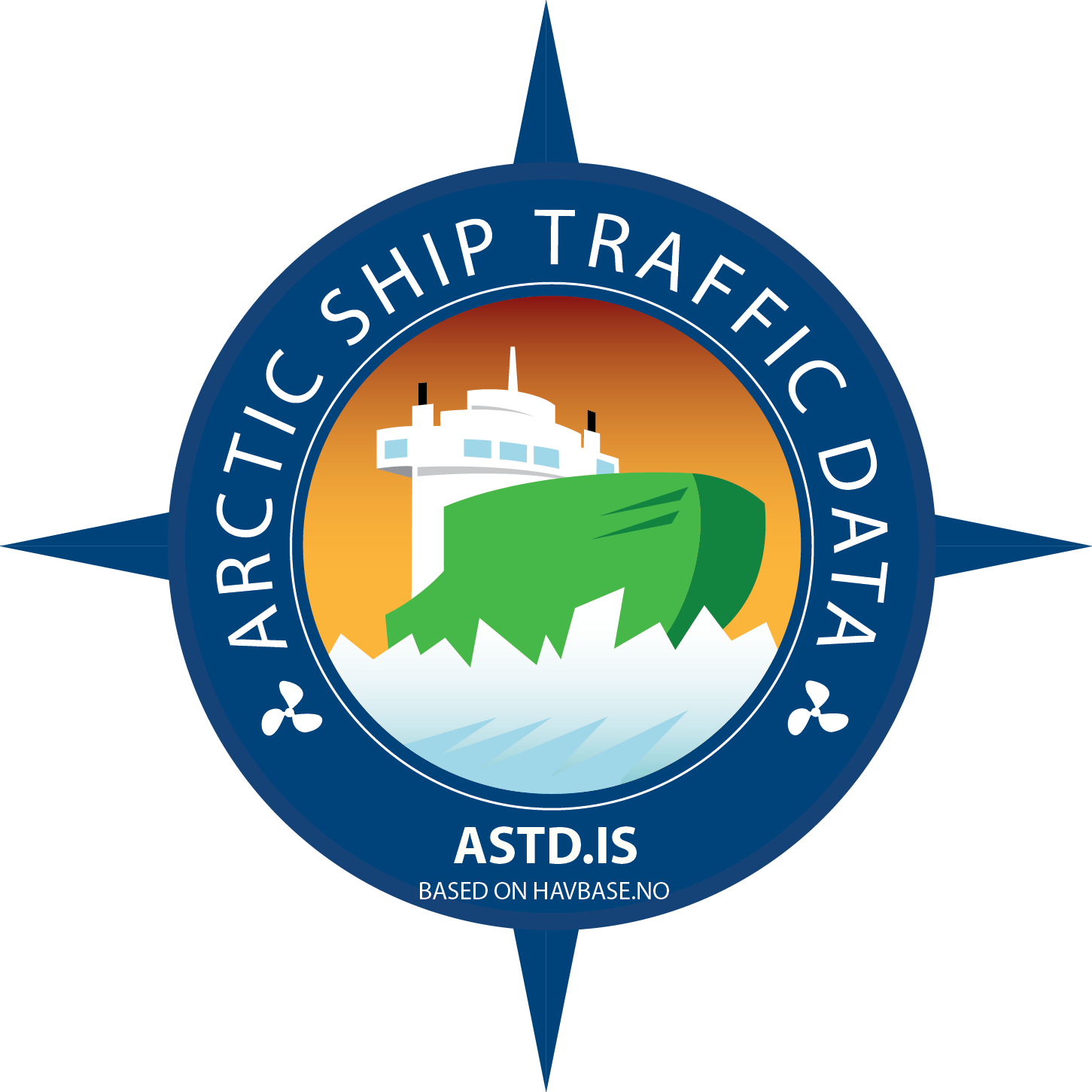 7 February 2019
7 February 2019
PAME LAUNCHES ARCTIC SHIPPING DATABASE
“Positioning the Arctic Council at the forefront of Arctic shipping data analysis”
www.astd.is
Malmö, Sweden:
Today, the Arctic Council’s Working Group on the Protection of the Arctic Marine Environment (PAME) launched a comprehensive Arctic shipping activity database. The launch is a significant milestone in PAME’s work to improve knowledge of historical Arctic ship traffic activity and various factors that affect such activity, such as sea ice extent, meteorological and oceanographic conditions, and international regulations. The database will allow authorized users to analyze vessel traffic patterns, fuel use, and air emissions, among other economic and environmental conditions.
The database includes archived information from 2005 to 2018 and will be updated regularly. Information contained in the ASTD database includes:
- Number of ships in the Arctic, distances sailed, and hours operated
- Location of ships, ship routes, and ship speed
- Ship types, including size and flag
- Pollution measurements from ships, including CO2 emissions
- Other environmental information such as sea ice extent
Access to the database, which may be used only for non-commercial purposes, is available to all Arctic Council members, accredited academic institutions, and other recognized research entities.
An example of a product made using data from the ASTD database - an analysis of ships in the Polar Code Area in 2017 - can be seen here: Click here to download.
Comment by PAME Chair Renée Sauvé:
“When PAME released the Arctic Marine Shipping Assessment Report in 2009, it contained data on Arctic shipping activities that had been collected by asking Arctic nations to fill in an Excel spreadsheet. Now, we are able to use satellites to gather information on shipping traffic in the Arctic. I am confident that the ASTD database will benefit PAME, the Arctic Council, and others by providing an invaluable tool to support a wide range of reports and analyses. The ASTD will increasingly be pivotal as we seek to better understand the growth of Arctic ship traffic in the years to come.”
For more information please visit www.astd.is
EXAMPLE OF GRAPHIC PRODUCED BY USING ASTD DATA – FREE FOR USE
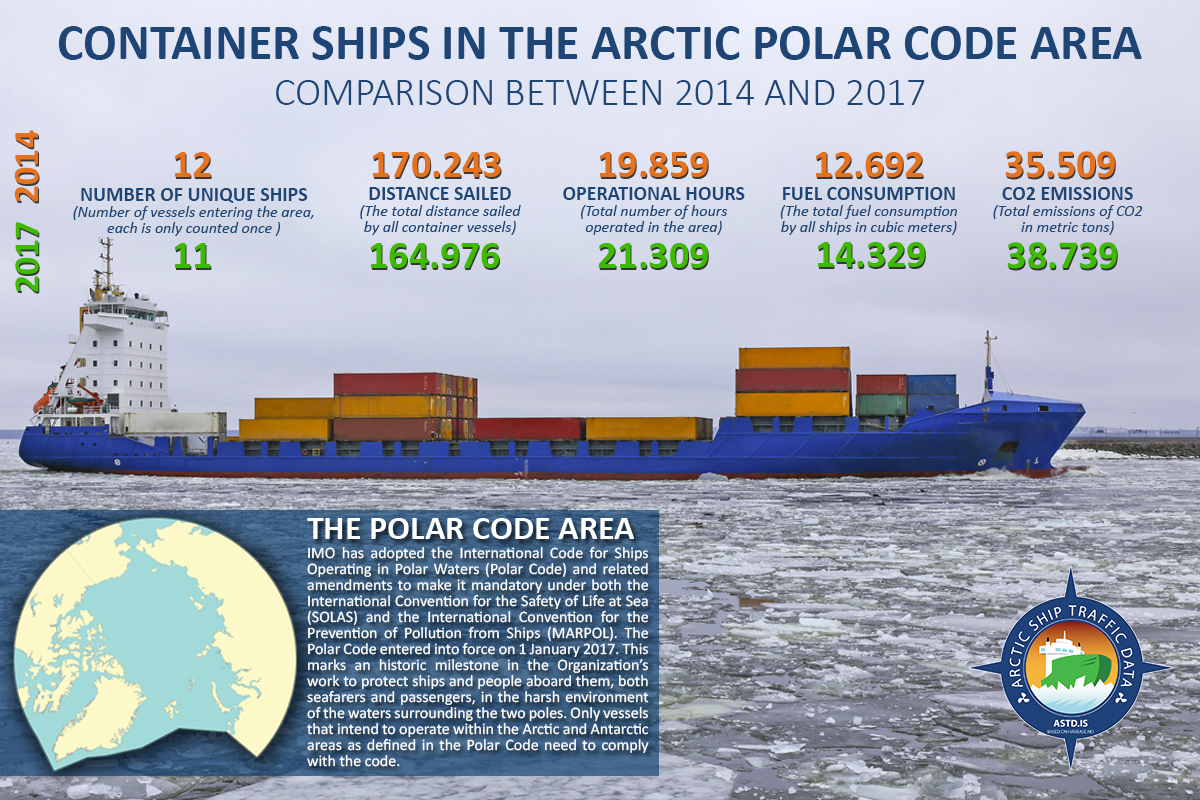
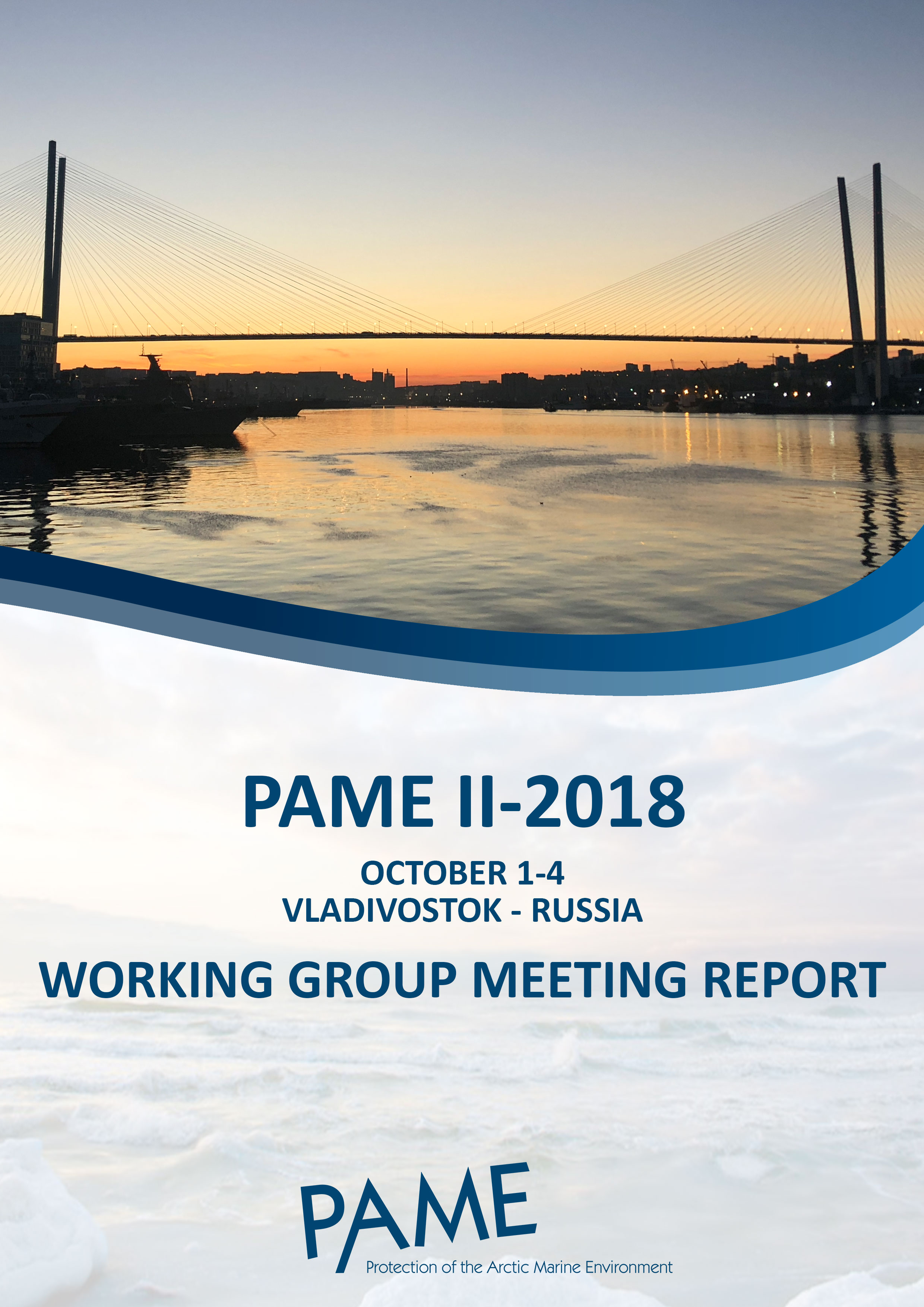 PAME has released its meeting summary from the PAME-ii 2018 meeting in Vladivostok, Russia. It includes a meeting summary, the list of participants, the meeting agenda and the list of documents.
PAME has released its meeting summary from the PAME-ii 2018 meeting in Vladivostok, Russia. It includes a meeting summary, the list of participants, the meeting agenda and the list of documents. The report can be seen here.
Information items from the meeting:
- PAME and CAFF have established a Joint ARIAS (Arctic Invasive Alien Species Strategy and Action Plan) Implementation Coordinating Group (ICG). First meeting in January 2019, looking at potential future projects.
- PAME is currently updating its recommendations from the 2009 Arctic Marine Shipping Assessment (AMSA) Report, the Arctic Ocean Review Final Report (AOR 2013) and the Arctic Marine Strategic Plan (AMSP), in consultation with all other Arctic Council working groups and task forces, as relevant.
- PAME is preparing the third meeting of the Arctic Shipping Best Practice Information Forum. It will further strengthen the work of the Forum, and its web-portal (www.arcticshippingforum.is).
- PAME has approved to develop a non-binding Memorandum of Understanding (MOU) with the Arctic Regional Hydrographic Commission (ARHC), subject to concurrence by the SAOs. Correspondence to start 2019 with ARHC!
- The World Meteorological Organization (WMO) gave a presentation at PAME II-2018, and based on this PAME invited the WMO to submit to PAME I-2019 a paper on the Voluntary Observing Ship (VOS) scheme, focusing on the number of ships operating in Arctic waters that participate in the scheme and the value of information they collect to enhancing maritime safety.
- PAME continues to work towards a harmonised implementation of the Polar Code. PAME will compile a list, summarising how each Arctic and Observer State understands and applies in practice the IMO’s Polar Code; encouraged them to continue to work towards a harmonized and effective implementation of the Polar Code.
- PAME aims to convene a joint submissions by all eight Arctic Council member states on the Regional Reception Facilities Plan (RRFP) – Outline and Planning Guide for the Arctic, to IMO’s MEPC 74 meeting in 2019.
- The ASTD project is progressing well, its database will be launched in January 2019. Much-waited by PAME’s members.
- PAME is planning to convene a workshop in 2018 to more systematically engage Observers in PAME’s shipping related work. See the Arctic Council Observers here.
- Part II of the MEMA project will see a report released in May 2019. It’s one of PAME’s highlight in work with indigenous people.
- The MEMA database has been launched. It has over 750 documents which was the basis for the MEMA reports. Access the database here: www.memadatabase.is
- PAME welcomed the Draft Guidelines for Implementing an Ecosystem Approach to Management of Arctic Marine Ecosystem. Based on a recognized need from Arctic Council ministers, the Guidelines will Assist scientists, policy-makers, managers and communities in EA Implementation.
- PAME is planning a 2nd International EA Conference to be held in Bergen, Norway, in late spring/early summer 2019 has been drafted with a focus on the issue of scale integration in EA implementation.
- A regional action plan on marine litter is a potential project for the Icelandic Chairmanship in the Arctic Council within PAME. The desktop study on marine litter, including microplastics, will be a PAME deliverable in May 2019.
- PAME works towards strengthening the coordination and collaboration with other working groups by inviting them to nominate experts in PAME’s expert groups working on activities of mutual relevance.
The next PAME meeting will be held in Gothenburg, Sweden, in February 2019.
PRESS RELEASE:
 Today, the Arctic Council’s Arctic Shipping Best Practice Information Forum launched a public Web Portal to assist in the effective implementation of the International Maritime Organization’s International Code for Ships Operating in Polar Waters (Polar Code).
Today, the Arctic Council’s Arctic Shipping Best Practice Information Forum launched a public Web Portal to assist in the effective implementation of the International Maritime Organization’s International Code for Ships Operating in Polar Waters (Polar Code).
The Web Portal, accessible at www.arcticshippingforum.is, provides links to authoritative information essential to implementation of and compliance with the Polar Code. For example, links are available on hydrographic, meteorological, and ice data information needed to plan for safe and environmentally sound navigation in the Arctic.
Information for the Web Portal was contributed by many stakeholders, including Arctic States, intergovernmental organizations, classification societies, the shipping industry, marine insurers, and non-governmental organizations. The Web Portal will be regularly updated and expanded as new information becomes available.
The Arctic Shipping Best Practice Information Forum was established in 2017 by the eight Arctic States (Canada, the Kingdom of Denmark, Finland, Iceland, Norway, the Russian Federation, Sweden and the United States) to help raise awareness and to promote the effective implementation of the Polar Code.
Dr. Stefan Micallef, Assistant Secretary-General of the IMO today gave remarks at the second meeting of the Forum highlighting the importance of the Forum´s work and collaboration between the IMO and the Forum to facilitate for a effective implementation of the Polar Code.
Finland’s Anita Makinen, the Forum Chair said:
“I am pleased to see the strong interest in the Forum and the evident commitment of its Participants to making it a success. I look forward to building on the progress made to date and further strengthening the Web Portal so that it becomes an indispensable tool for all those involved in Arctic shipping.”
The meeting took place in London from 14-15 May and was hosted by the Irish Cultural Centre. For further information about the Forum, its second meeting, and its participants, please visit the Meeting Site.
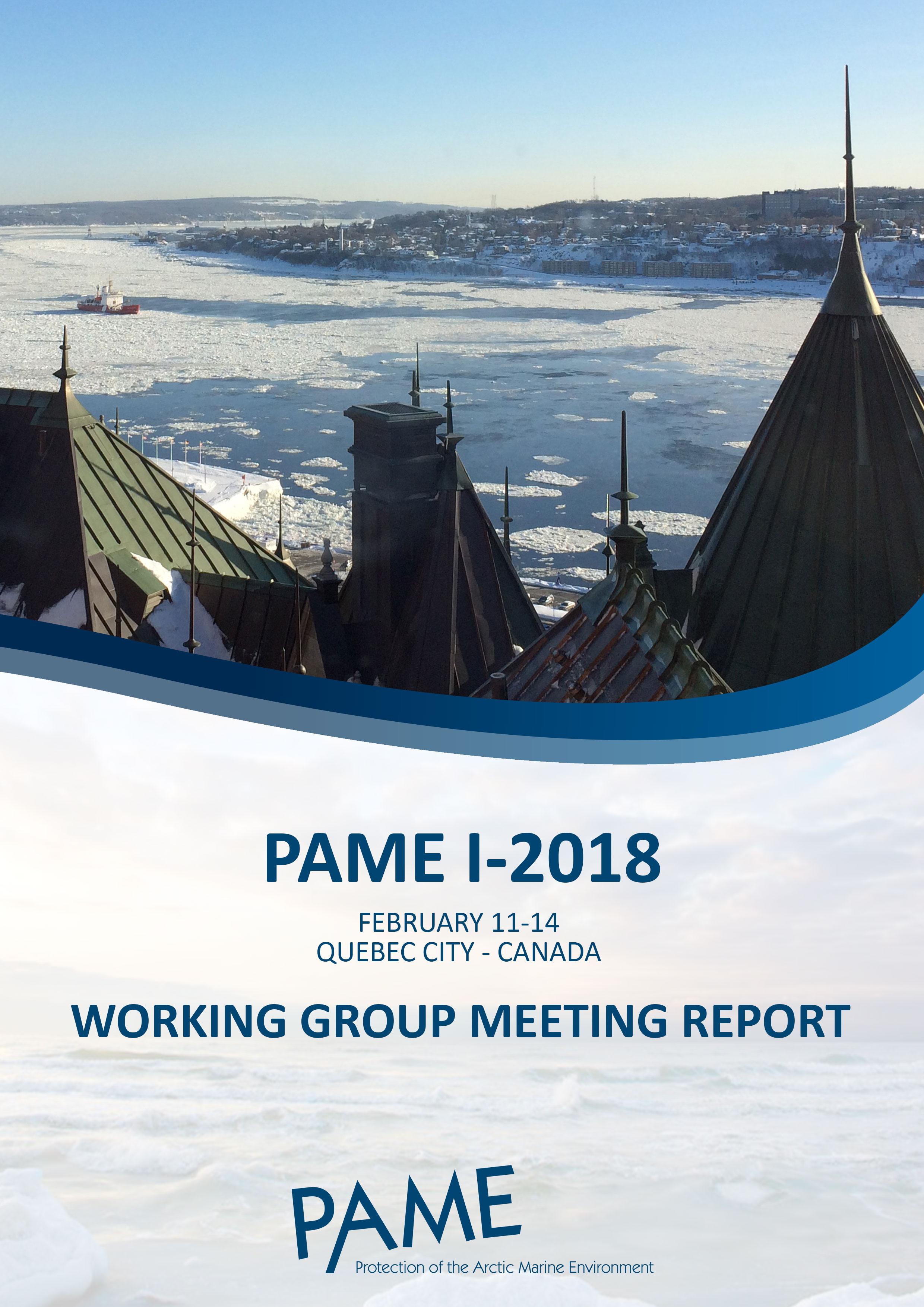 PAME has released a meeting report from its meeting in Quebec City, Canada, last week.
PAME has released a meeting report from its meeting in Quebec City, Canada, last week.Over 80 participants from Arctic Council Member States, Permanent Participants and Observers participated, in addition to invited experts.
Click here to download the report.
The meeting report includes the meeting decisions (Records of decisions), a list of meeting participants, the agenda for the meeting, and a list of all documents discussed at the meeting.
The PAME meeting reports give great insight into how PAME operates in its meetings, whilst the bulk of the work is done interseassionally.
The PAME Working Group meets twice per year, with the next meeting being held in Vladivostok, Russia.
Click here to download the report.
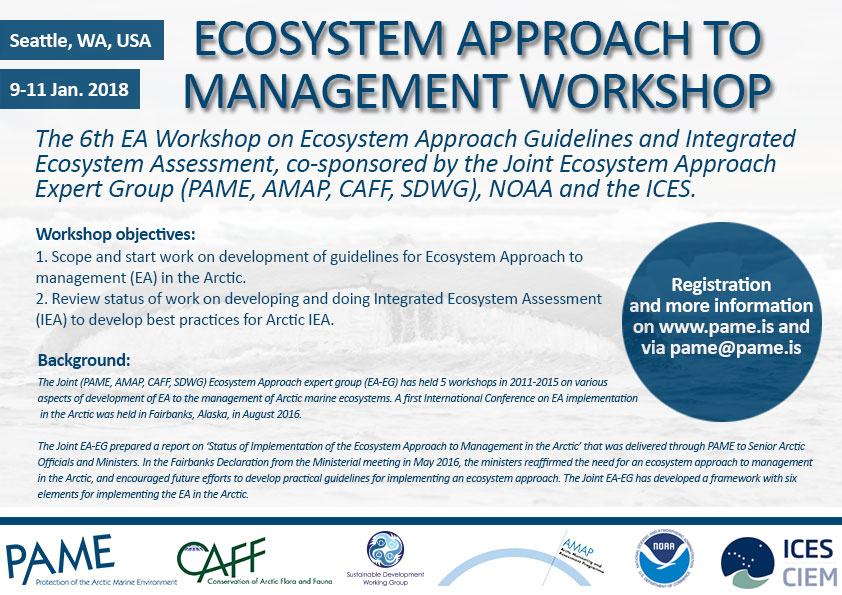 The 6th Ecosystem Approach to Management workshop was held in January 2018 in Seattle, W, USA The Joint (PAME, AMAP, CAFF, SDWG) Ecosystem Approach expert group (EA-EG) held 5 workshops in 2011-2015 on various aspects of development of EA to the management of Arctic marine ecosystems. A first International Conference on EA implementation in the Arctic was held in Fairbanks, Alaska, in August 2016.
The 6th Ecosystem Approach to Management workshop was held in January 2018 in Seattle, W, USA The Joint (PAME, AMAP, CAFF, SDWG) Ecosystem Approach expert group (EA-EG) held 5 workshops in 2011-2015 on various aspects of development of EA to the management of Arctic marine ecosystems. A first International Conference on EA implementation in the Arctic was held in Fairbanks, Alaska, in August 2016.The Joint EA-EG prepared a report on ‘Status of Implementation of the Ecosystem Approach to Management in the Arctic’ (download here) that was delivered through PAME to Senior Arctic Officials and Ministers. In the Fairbanks Declaration from the Ministerial meeting in May 2016, the ministers reaffirmed the need for an ecosystem approach to management in the Arctic, and encouraged future efforts to develop practical guidelines for implementing an ecosystem approach. The Joint EA-EG has developed a framework with six elements for implementing the EA in the Arctic.
The work at the 6th EA workshop focused on two related subjects:
- Development of EA guidelines, as requested by the Arctic Council ministers, and
- share and summarize information and experiences with integrated assessments of ecosystem status as a step toward developing best practices for Arctic IEA, for measuring trends and pressures for coastal and marine areas (which is a follow-up of EBM recommendation 3.5 from Kiruna in 2013).
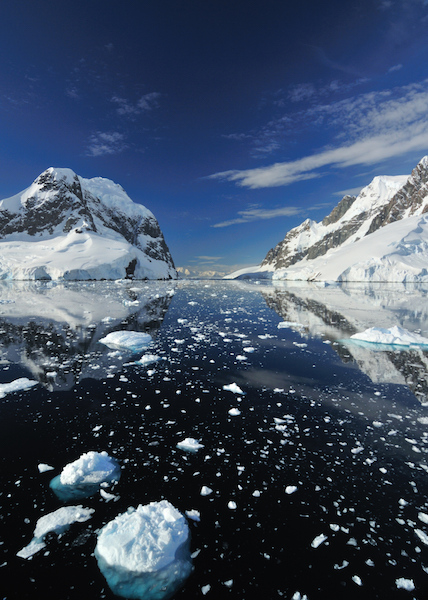 - Experiences after one year´s Enforcement
- Experiences after one year´s EnforcementPress release:
Finland welcomes the entry into force of the IMO Polar Code from the beginning of this year as its enforcement enhances both shipping safety and environmental protection in its application areas in the Arctic and Antarctic waters i.e. in the both Polar regions.
“Exploring common solutions” is the slogan for the Finland´s Arctic Council Chairmanship Programme for 2017-2019. Our message is clear - only together can we successfully confront the challenges. And accordingly, Finland wants the public and the private sectors in the Arctic to work together towards common goals of the Polar Code.
The Arctic Council PAME Working Group has established the Arctic Shipping Best Practice Information Forum to support effective implementation of the Polar Code. Finland supports the work of the Forum and in accordance Finland has the honor to host an “International Conference on Harmonized implementation of the Polar Code“on 22 February 2018 in Helsinki, Finland.
Date: 22th February 2018
Venue: Hilton Helsinki Strand Hotel
(address John Stenbergin ranta 4)
Registration: Click here
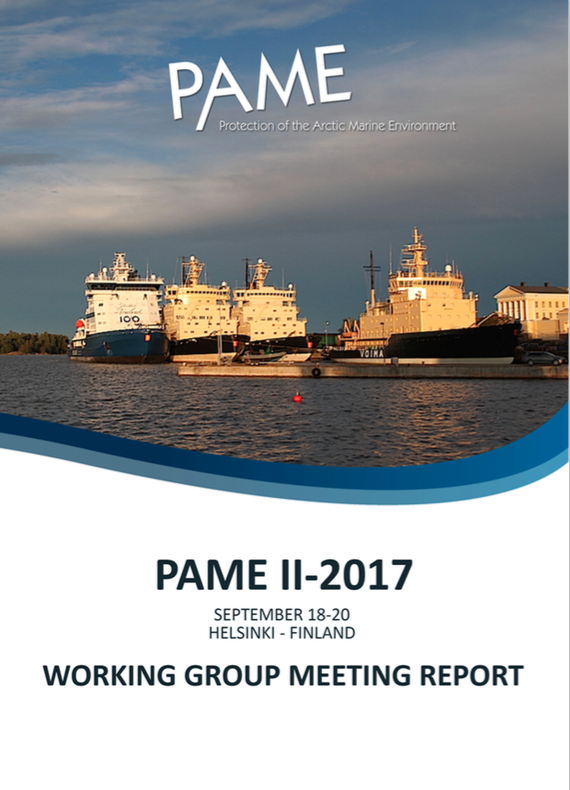 PAME’s second biennial meeting of 2017 (PAME II-2017) was held in Helsinki, Finland from 18-20 September following pre-meetings of PAME’s five thematic expert groups on 17 September (shipping, marine protected areas, ecosystem approach, marine litter and resource development) and the 3rd MPA Workshop 21-22 September.
PAME’s second biennial meeting of 2017 (PAME II-2017) was held in Helsinki, Finland from 18-20 September following pre-meetings of PAME’s five thematic expert groups on 17 September (shipping, marine protected areas, ecosystem approach, marine litter and resource development) and the 3rd MPA Workshop 21-22 September.The PAME II-2017 Meeting Report has subsequently been released. It includes the Records of Decisions from the meeting and its follow up actions.
It also entails the list of participants with 93 people participating in the meeting - a record for PAME. The meeting agenda is also included.
Topics of discussion a the meeting included updates to and next steps in specific projects, new project ideas and presentations from various bodies, including from International Council on Clean Transportation (ICCT) on the use and carriage of HFO by ships in the Arctic, the Finnish Maritime Environment Tri-authority Operations (METO), the Finnish Shipowners’s Association and Germany on its Arctic policy guidelines, interests and polar research.
Click here to download the meeting report, which proves a great insight in PAME's work.
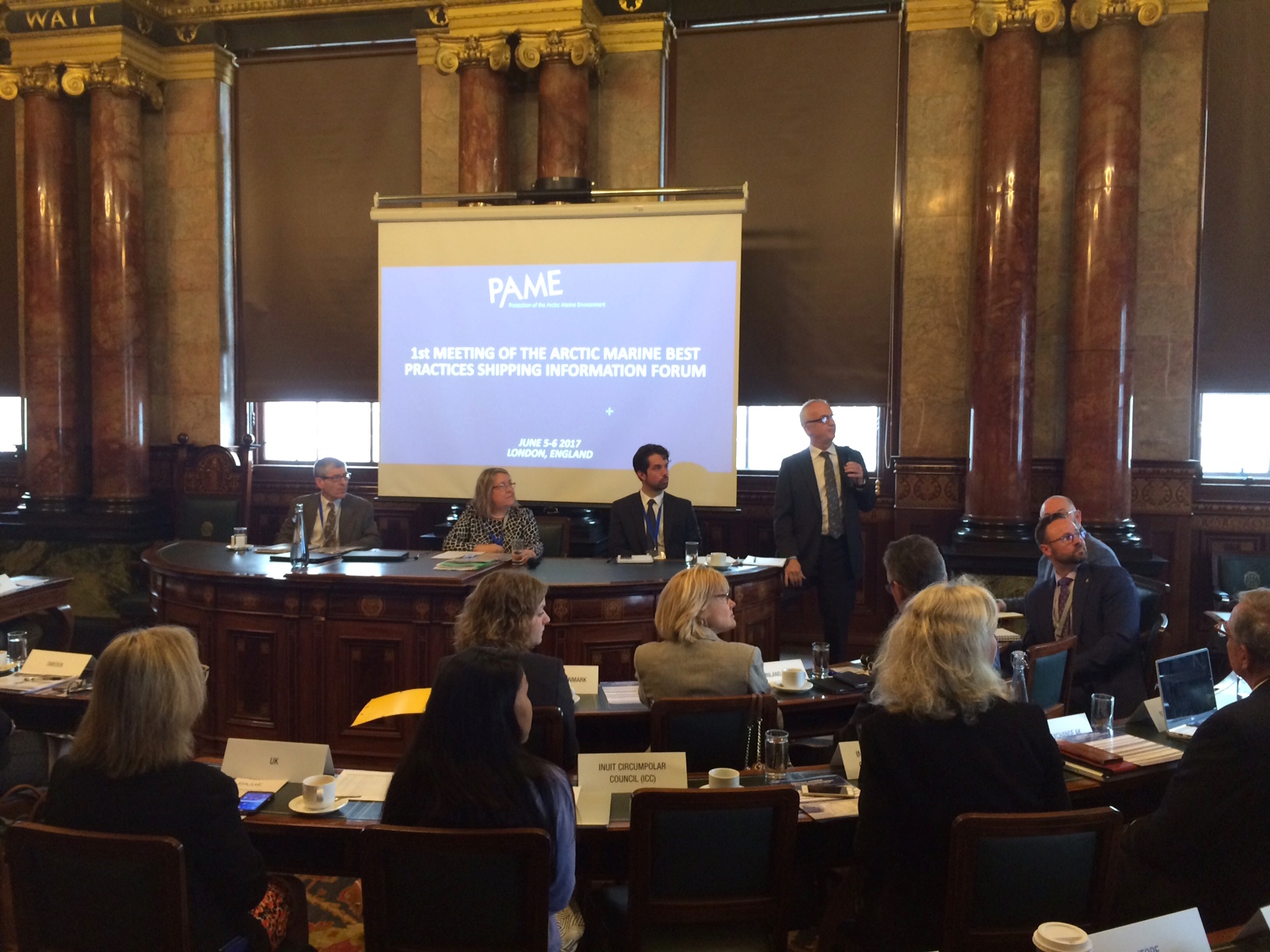 Today, 6 June 2017, at Lloyd's Register's Office in London, the inaugural meeting of the Arctic Shipping Best Practices Information Forum concluded.
Today, 6 June 2017, at Lloyd's Register's Office in London, the inaugural meeting of the Arctic Shipping Best Practices Information Forum concluded. The Forum has been established by the eight Arctic States (Canada, the Kingdom of Denmark, Finland, Iceland, Norway, the Russian Federation, Sweden and the United States) to help raise awareness and to promote the effective implementation of the International Maritime Organization's International Code for Ships Operating in Polar Waters (Polar Code), a mandatory international framework that increases the safety of ship operations and mitigate the impact on the people and the vulnerable environment in Polar waters. The Polar Code came into force in January 2017.
The Forum was referenced in the Arctic Council’s Ministerial Declaration in Fairbanks, Alaska on 11 May 2017, signed by the foreign ministers of the eight Arctic States.
In the Declaration, the Arctic States welcomed:
“ the entry into force of the Polar Code to ensure safe and environmentally sound shipping in the harsh Arctic marine environment, and encourage continued engagement by Arctic States, including at the International Maritime Organization, to facilitate harmonized implementation and enforcement of the Polar Code, and note with appreciation the establishment of the Arctic Shipping Best Practices Information Forum to promote the implementation of the Code”
The International code of safety for ships operating in polar waters (Polar Code) covers the full range of design, construction, equipment, operational, training, search and rescue and environmental protection matters relevant to ships operating in the inhospitable waters surrounding the two poles.
Convened under the auspices of the Arctic Council's Working Group on the Protection of the Arctic Marine Environment (PAME), the Forum aims to make publicly available, at a single web portal, information to support effective implementation of the Polar Code.
In addition to Arctic Council members, including Arctic States, Permanent Participants and Observers, the Forum was attended by a wide spectrum of stakeholders with an interest in Arctic shipping. In particular, industry has played a key role in shaping the Forum, with significant input from maritime organizations and insurers, including Lloyd’s of London, and Lloyd’s Register.
Mr. Ashok Mahapatra, Director of the Maritime Safety Division of the International Maritime Organization, gave an address emphasising the importance of compiling information to assist in effective implementation of and compliance with the Polar Code.
Finland’s Anita Makinen, the Forum Chair said:
“The inaugural meeting of the Arctic Shipping Best Practices Information Forum is an important milestone in identifying and gathering information to support safe and environmentally responsible Arctic shipping.”
She went on to say, “The input of so many stakeholders in the Forum demonstrates the importance of working in a collaborative approach to support the effective implementation of international regulations.”
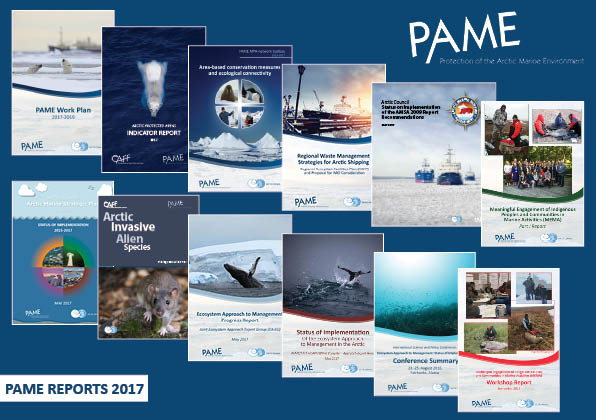 The tenth Ministerial Meeting of the Arctic Council took place in Fairbanks, Alaska, USA from May 10-11, 2017. PAME has released 15 documents to the meeting where the Foreign Ministers of the eight Arctic States convened, together with delegations from the Council's indigenous Permanent Participant organizations. The meeting saw the Chairmanship of the Arctic Council pass from the United States to Finland.
The tenth Ministerial Meeting of the Arctic Council took place in Fairbanks, Alaska, USA from May 10-11, 2017. PAME has released 15 documents to the meeting where the Foreign Ministers of the eight Arctic States convened, together with delegations from the Council's indigenous Permanent Participant organizations. The meeting saw the Chairmanship of the Arctic Council pass from the United States to Finland.The PAME deliverables for the 2017 Ministerial Meeting are the following:
- PAME MPA-network toolbox: Area-based conservation measures and ecological connectivity
- Indicator Report on Arctic Protected Areas (CAFF/PAME)
- Arctic Invasive Alien Species Strategy and Action Plan (ARIAS) (CAFF/PAME)
- Final report on the Regional Reception Facilities plan and draft submission for IMO
- Cooperative Agreement among the Arctic States Regarding Arctic Ship Traffic Data Sharing
- Status of Implementation of the Ecosystem Approach to Management in the Arctic
- PAME Work Plan 2017-2019
- PAME Main Achievements 2015-2017
- 4th AMSA Implementation Progress Report for the period 2015-2017.
- Terms of Reference for the Arctic Shipping Best Practices Information Forum.
- Meaningful Engagement of Indigenous Peoples and Communities in Marine Activities (MEMA) Part I Report.
- MEMA Workshop Report.
- The 2015 – 2017 Progress Report of the Joint Ecosystem Approach Expert Group (EA-EG).
- The Summary Report of the International Science and Policy Conference on the Status of Implementation of the Ecosystem Approach in the Arctic.
- 1st Report on progress/implementation of the 2015-2025 Arctic Marine Strategic Plan (AMSP).




